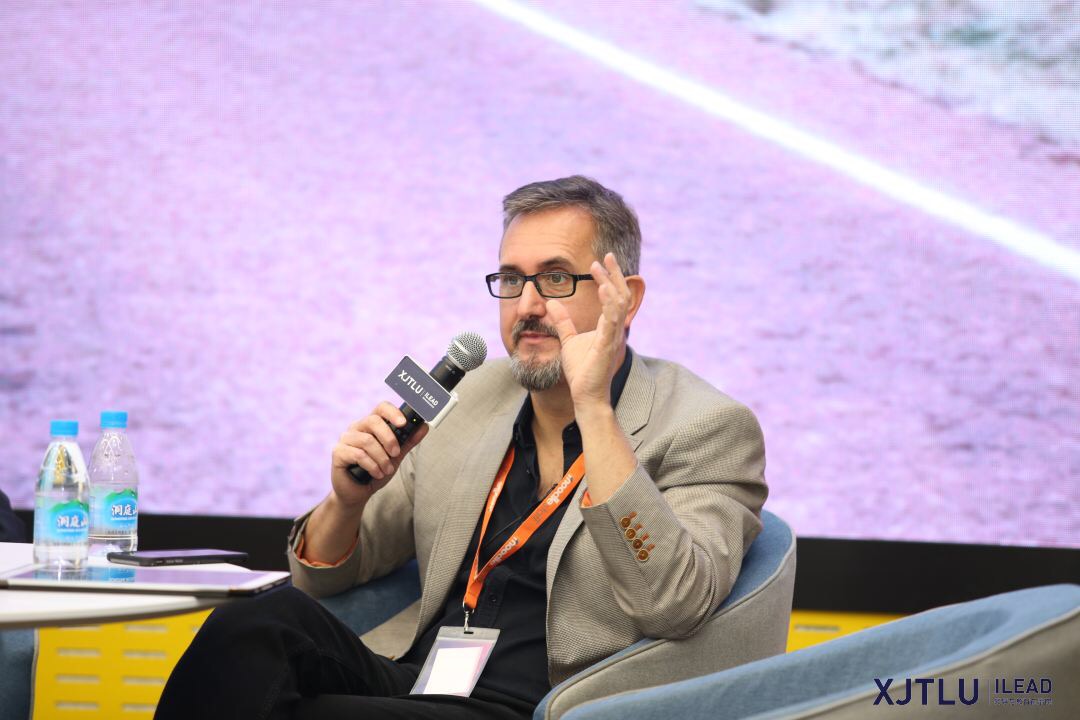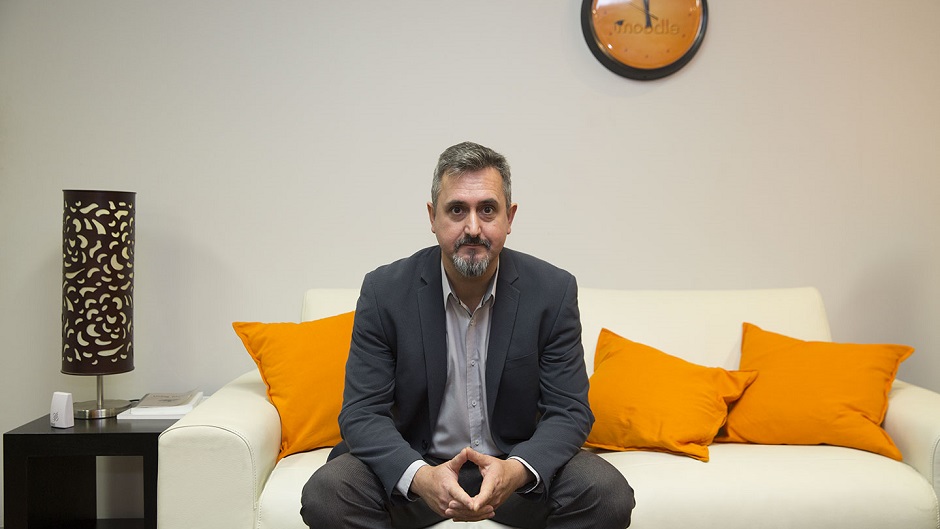24 May 2019
According to the creator of the most popular open source learning platform in the world, education should foster the development of global citizens with critical thinking skills.
These skills are urgently needed to solve the world's most pressing problems, said Dr Martin Dougiamas, Moodle creator and CEO, at an event at Xi’an Jiaotong-Liverpool University on May 19.

“The world has big problems, including inequality, climate change, pollution, refugees and more,” he said.
“These are the problems the next generation is facing, and to address them that generation has to be almost entirely made up of people who are globally oriented, multi-culturally aware, environmentalists and caring citizens.”
Any subject can be used to broaden students’ education to provide deeper understanding of these problems and prepare students for this unique time in world history, Dr Dougiamas said at China’s first MoodleMoot – a conference for its users and others interested in the platform.
“If we present engineering as just a functional mechanical process of implementing what someone told you to do, then that is how our engineers will behave, think and act,” he said.
“However, if we present engineering as a way to solve real human problems on a global scale, then that is what our engineering students will be ready to do in the future.”
Dr Dougiamas explained that while Moodle initially focussed on enabling educators to create private, custom learning environments, the company now aims to promote the development and sharing of curriculum to broaden education so that the next generation is prepared to solve world problems.
“We have access to about 60 percent of the universities in the world, as well as many schools and companies, through our Moodle product,” he said.
“Instead of being neutral about what is being taught, as Moodle was in the past, the United Nations’ sustainable development goals have identified a very clear agenda of 17 big challenges that we should be addressing. These transcend national boundaries and cultures – they are big issues for the planet.
“We have a platform, with all this connection to educators, so I feel justified in thinking about how we can bring these 17 challenges into the curriculum for everyone.”
According to Dr Dougiamas, open educational technology enables educators across the world to work together to create and develop best practices. Moodle’s new project will provide such a platform.
“Our new project, called MoodleNet, will be the foundation of content distribution for education,” he said.
“It’s a federated, noncentral, multinational, multicultural platform, and it’s free and promotes free content. Once we build that platform and the Moodle educators connect, they are going to find out that it’s very easy to work with other educators to create this content.
“If you are teaching a subject and faced with creating all the content yourself or using digital content available from elsewhere that’s just a click away and free, you’re going to choose that already prepared content.
“And if that shared digital content is infused with these kind of ideas I’m talking about – around the big problems our world is facing – then suddenly you start getting them into the curriculum.
“I feel that because of our position now, Moodle has a responsibility to give this a shot. We are bringing together a lot of people around this open educational-technology platform.”
The MoodleMoot was part of XJTLU’s 2019 Annual Conference on Higher Education Innovation.
While Dr Dougiamas was on campus, XJTLU students and other XJTLU community members had the chance to hear him describe the history of Moodle’s development, learn about the role of technology in education and hear about his life as a product creator and CEO.
At a question-and-answer session, Dr Dougiamas said one of the most important activities to undertake when starting out is to determine your values.
“If you are beginning any company, enterprise or project, besides determining your mission, I would advise you to figure out your values,” he said.
“Values are often quite devalued – on company websites they are regularly buried under the description of the board. But I really try to put them up front.
“Our five values – education, openness, respect, integrity and innovation – are the things that don’t change, and they underpin everything.
“It will be different for every enterprise but I would suggest that determining them is very important.”
In addition, he advised prioritising product quality over concerns about money.
“Focus on the money last,” he said. “I was pretty strained living on a scholarship in the early days, but see if you can find a creative way to work without selling out, such as getting your family to support you, being part of an incubator or working within a larger company.
“Instead of stressing about the money, stress about getting the quality of what you are creating right. If you do that and it’s aligned with the universe correctly, it’ll just take off because it’ll be a good thing and people will want it.
“Don’t worry about being a billionaire – I think if you are, you are going about it wrong. Instead, solve a problem.”
By Tamara Kaup; photo by XJTLU ILEAD
24 May 2019
RELATED NEWS

XJTLU brings Moodle event to China for first time
In a China first, Xi’an Jiaotong-Liverpool University will host the creator of Moodle, Dr Martin Dougiamas, this week in an event exploring the vital role te...
Learn more







